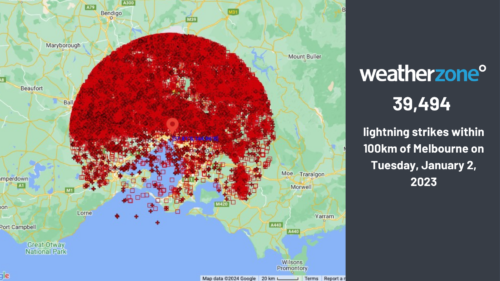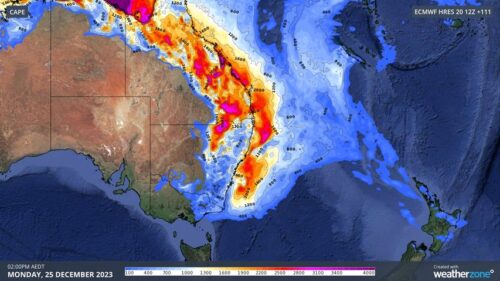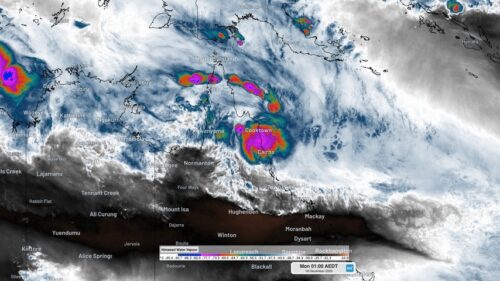Australia’s 5th warmest year on record based on daytime heat
Australia’s mean maximum temperature in 2023 was 1.34ºC warmer than the 30-year period ending in 1990, making it the country’s 5th warmest year on record. The combined warming effects of El Niño, a positive Indian Ocean Dipole (IOD) and...
Why did electricity demand hit a record low?
On the closing day of 2023, rooftop solar boomed in SA and Vic while record low energy demand was recorded in the two states. On Sunday, December 31, mild temperatures and sunny skies were behind the new record...
40 thousand lightning strikes ground flights at Melbourne airport
Severe thunderstorms are expected to impact Vic on Wednesday, after wild and dangerous thunderstorms lashed Melbourne on Tuesday afternoon, causing havoc at its bustling airport. The thunderstorms brought torrential rain, damaging winds, and large hail to parts of Victoria on...
Can bad weather stop Sydney’s NYE fireworks
The Sydney New Year’s Eve fireworks are a spectacular display, but sometimes bad weather can get in the way. While it is extremely rare for Sydney’s famous NYE fireworks to be cancelled, fierce winds and thunderstorms can cause delays...
Which Aussie city had the hottest Christmas Day?
Christmas Day weather can be a bit of a mixed bag in Australia, fluctuating from extreme heat to winter-like days or heavy rain to blue skies. The contrasting weather over the years has had Australians either reaching for...
Severe storms to strike eastern Australia on Christmas Day
An outbreak of severe thunderstorms is likely to develop over eastern Australia on Christmas Day, with Australia’s three largest cities and the nation’s capital all at risk of wet and stormy weather. As usual, the weather across Australia on...
NSW fires generate thunderstorm and 1500 km smoke plume
A large fire near Narrabri in North Western NSW has produced a fire-generated thunderstorm and a smoke plume so large that it can be seen from space stretching around 1500 km across the Tasman Sea. An Emergency Warning was...
Two Qld locations register Australia’s 3rd and 4th wettest day on record, provisional data shows
Some of the heaviest rain ever observed in Australia has hit Queensland’s North Tropical Coast during the last few days, resulting in widespread major flooding and landslips. Rainfall has been relentless over northeast Qld ever since Tropical Cyclone Jasper...











